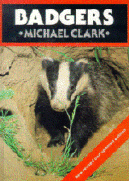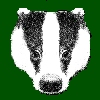Cattle TB cases put badgers in
spotlight

10 January 2004 - Lakeland Today
THE Government is to embark on a survey of
badgers in the Furness peninsula following an unexplained rise in
bovine TB incidents in South West Cumbria.
The survey by Defra (Department for Farming and
Rural Affairs) will also monitor deer culled and found dead with
suspect TB lesions within the survey area.
The structured survey
will concentrate on badgers and deer killed on the roads in an area
of around 180 sq kilometres with the intention of determining
whether any of the animals are infected with bovine TB.
Cumbria
has been relatively free from bovine TB for many years, but there
has been an increasing incidence of outbreaks in cattle in recent
months. While some of these are related to the purchase of
infected cattle from other parts of country, there have been seven
confirmed TB incidents in the Furness peninsula in the last 18
months where purchased livestock do not appear to be
involved.
The State Veterinary Service is currently testing all
of the cattle in the area.
Results from the extra testing of
cattle and the Road Traffic Accident (RTA) survey will be used to
determine the future cattle testing policy for the area. Farmers
and members of the public who find a dead badger on the roads should
contact the Animal Health Office in Carlisle, (Phone 01228 - 591 999) who
will arrange for collection of the carcasses and transferral to the
Veterinary Laboratory Agency's regional laboratory at Penrith for
further examination.
| Note from Badgerland
|
A very few cattle in the Furness peninsular were found to
be infected with the bovine tuberculosis virus.
DEFRA failed to report that a series of "high-tech" blood tests
were carried out on the individual strains of TB found in the cattle. This
high-tech testing is known as genetic-typing or spoligotyping.
Unlike the older skin-prick-type tests, these more modern tests are totally
accurate; and have confirmed that the so-called "Furness" strain
of bovine TB has only ever been found in Shropshire until now. As badgers
can not travel between Shropshire and Cumbria, this clearly indicates that
the cause of this infection is cattle movements; and not badgers.
|
| Michael Clark
book |
 |
This is a superb book about badgers by Michael
Clark. His immense knowledge of badgers really shines through. Click here to buy:
2017 edition or
2010 edition
or
2010 edition
|
| External News |
|
We have provided links to stories from external news
organisations so you can follow the media interest in badgers, and see who
writes on the subject. We do not endorse external authors. |
 |
|
